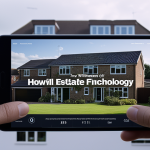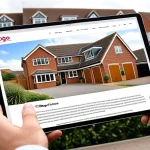Leading Technology Trends Transforming UK Smart Cities
Innovations in smart cities UK largely hinge on the seamless integration of emerging technologies. One of the most crucial developments is the widespread IoT adoption in urban infrastructure. IoT devices enable real-time monitoring and automation of city resources—from street lighting to waste management—optimizing efficiency and reducing costs.
Data analytics advancements also play a key role. By harnessing vast data streams from sensors and connected devices, city officials can make real-time decisions to improve services such as traffic flow and emergency responses. These analytics platforms provide actionable insights that make urban environments more responsive and adaptive.
Also to read : What are the latest trends in UK technology and how are they transforming industries?
Artificial Intelligence (AI) further enhances city services by automating complex tasks and predicting future trends. AI-powered systems assist in resource allocation, maintenance scheduling, and even public safety monitoring. Together, IoT, data analytics, and AI form a technology triad that is reshaping how smart cities UK operate, driving progress toward more connected, efficient, and citizen-centric urban living.
Connectivity and Communication Infrastructures
Connectivity forms the backbone of smart cities UK, with 5G networks UK playing a pivotal role in advancing urban connectivity. The expansion of 5G networks UK significantly enhances data transmission speeds and network capacity, enabling real-time processing crucial for applications like traffic management and emergency services. This surge in network performance supports the integration of multiple emerging technologies, making city operations more responsive and efficient.
In the same genre : What Role Does Cybersecurity Play in UK Business Protection?
Secure communication platforms underpin reliable city functions by safeguarding data exchanges across various systems. They ensure that sensitive information—from public safety alerts to infrastructure controls—remains protected, fostering trust among citizens and stakeholders. Enhanced digital infrastructure not only supports operational needs but also boosts citizen engagement through accessible digital services such as mobile apps and online portals.
Through this improved digital infrastructure, residents experience better access to information and city services. Interactive platforms foster community participation, allowing feedback that shapes ongoing urban development. Robust communication networks, coupled with widespread adoption of 5G networks UK, are thus fundamental drivers in evolving smart cities UK into connected, dynamic environments.
Connectivity and Communication Infrastructures
Effective urban connectivity hinges on the rapid expansion of 5G networks UK. These networks offer unparalleled speed and low latency, enabling smart cities UK to support vast numbers of connected devices simultaneously. This is critical for real-time data sharing between IoT sensors, AI systems, and data analytics platforms, enhancing how city services respond to dynamic urban conditions.
Secure communication platforms form the backbone of city operations. With sensitive information flowing through networks, data integrity and privacy become priorities. Technologies such as end-to-end encryption and network segmentation ensure that communication among municipal departments remains protected, fostering trust in digital infrastructure.
Moreover, 5G networks UK empower digital services that increase citizen engagement. Residents gain access to apps for reporting issues, receiving alerts, and interacting with local government efficiently. This improved connectivity not only improves quality of life but also promotes inclusivity by bridging digital divides in smart cities UK. Together, robust communication infrastructures and next-generation networks create a foundation for future-ready, responsive urban environments.
Sustainable and Resilient Smart City Solutions
Sustainable infrastructure is a cornerstone of smart cities UK, focusing on reducing environmental impact while enhancing urban resilience. Smart grids play a vital role by integrating renewable energy sources such as solar and wind, enabling efficient energy distribution and reducing reliance on fossil fuels. These grids balance supply and demand dynamically, promoting energy efficiency and lower carbon emissions.
In transport, green technology takes form through low-carbon options like electric vehicles (EVs) and connected charging stations. The deployment of EV charging points across urban areas supports cleaner mobility, reducing pollution and traffic noise. Mobility hubs further complement this by combining various transport methods, creating seamless, eco-friendly travel options.
Waste management is undergoing innovation with technologies that optimize collection routes using data analytics, minimizing fuel usage and operational costs. Water conservation techniques, including smart sensors for leak detection and automated irrigation, protect resources by enhancing monitoring capabilities.
Together, these emerging technologies foster sustainability and resilience in UK cities, ensuring long-term benefits for both the environment and citizens. Prioritizing green technology enables smart cities UK to address climate challenges while improving quality of life through smarter resource management.
Sustainable and Resilient Smart City Solutions
Sustainable infrastructure is central to developing smart cities UK that are both eco-friendly and resilient. Key technology trends include the deployment of smart grids, which integrate renewable energy sources like solar and wind into urban power systems. These grids enhance energy efficiency by balancing supply and demand in real time, reducing waste and supporting cleaner city operations.
Emerging technologies also drive progress in low-carbon transport. Electric vehicle (EV) charging stations proliferate alongside mobility hubs, enabling seamless transitions between transport modes and cutting emissions. This integration addresses urban congestion and aligns with the UK’s environmental goals.
Water conservation and waste management technologies further strengthen city resilience. Smart sensors monitor usage and detect leaks, optimizing resource allocation. Automated waste sorting systems increase recycling rates while lowering landfill dependency. Together, these innovations build sustainable urban environments, minimizing environmental impact and promoting long-term vitality in smart cities UK.
Intelligent Urban Mobility and Transportation
Smart mobility is at the forefront of transforming smart cities UK, leveraging transport technology to create efficient, sustainable travel solutions. Integration of autonomous vehicles into public transit networks significantly enhances safety and reduces human error, while enabling flexible, on-demand services that adapt to passenger needs.
Data-driven traffic management systems use real-time analytics to monitor congestion, accidents, and road conditions. This continuous flow of data allows dynamic signal adjustments and route optimizations, cutting commute times and lowering emissions. Cities employing such systems see marked improvements in traffic fluidity and environmental impact.
The implementation of Mobility-as-a-Service (MaaS) models breaks traditional barriers by combining public transit, ride-sharing, bike rentals, and more into a single, user-friendly platform. This encourages multimodal transport use, reducing reliance on private cars. MaaS also facilitates seamless payment and trip planning, enhancing the overall urban mobility experience.
Together, these UK mobility solutions demonstrate how emerging technologies optimize transport infrastructure. They deliver not only convenience but also contribute to sustainability goals and economic growth, making city travel smarter and more accessible for all residents.
Leading Technology Trends Transforming UK Smart Cities
At the core of smart cities UK development lies widespread IoT adoption. Integrating IoT devices into urban infrastructure enables continuous data collection from sensors embedded in roads, buildings, and public utilities. This connected fabric supports real-time monitoring, allowing cities to optimize operations like energy use and public safety efficiently.
Advancements in data analytics amplify the power of this data. City administrators leverage predictive algorithms to anticipate resource demands or detect anomalies quickly. For example, traffic patterns analyzed through data analytics allow for dynamic signal adjustments, reducing congestion. Thus, data-driven decision making becomes a hallmark of modern urban management.
Artificial Intelligence (AI) further revolutionizes city services by automating complex, repetitive tasks. AI applications in smart cities UK include predictive maintenance of infrastructure systems, enabling timely repairs before failures occur. AI-powered platforms also enhance public safety by analyzing surveillance data to identify potential incidents earlier.
Together, these emerging technologies—IoT, data analytics, and AI—create a synergy that transforms UK urban environments into connected, adaptive, and user-focused ecosystems. The ongoing integration ensures continuous improvements in efficiency, sustainability, and quality of life for residents.




